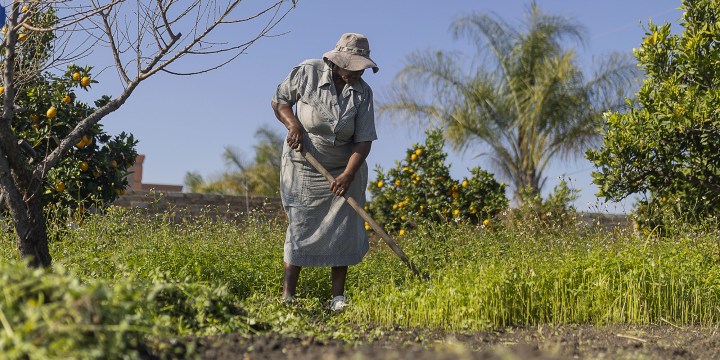AGRO ENERGY FUND
Government and Land Bank launch funding initiative to provide alternative power solutions for farmers

The funding instrument hopes to alleviate the impact of rolling blackouts on agricultural producers, some of whom have lost millions in revenue and large amounts of produce due to the ongoing energy crisis.
Farmers have been thrown a lifeline with a blended finance instrument that aims to tackle the negative impacts of rolling blackouts on productivity faced by agricultural producers, said Thoko Didiza, the minister of agriculture, land reform and rural development, at a media briefing in Pretoria on Tuesday.
The R1.21-billion Agro Energy Fund — a partnered effort by the Department of Agriculture, Land Reform and Rural Development and the state-owned agricultural Land Bank — is aimed at providing financing for farmers to find alternative energy solutions.
The fund is aimed at a range of producers, from small-scale farmers to large commercial agricultural companies.
“We are delighted to be in this partnership with the department for the implementation of the Agro Energy Fund, which is important to provide energy security to ensure that farming continues uninterrupted even during load shedding hours and there will be extra energy stored through this funding,” said Thabi Nkosi, chair of the Land Bank board.
“This may also reduce the electricity bill of the farms as they will no longer buy full units but use solar-generated energy.”
The blended financial instrument includes grants and loans, ranging between R500,000 and R1.5-million. The Department of Agriculture, Land Reform and Rural Development will contribute R500-million towards the grant aspect of the fund, while the Land Bank will match that with R710-million for the loan portion.
Small-scale farmers can receive financing in the form of a 70% grant and a 30% loan, with the grant set at a maximum of R500,000. For medium-scale farmers, 50% will be a grant with a 50% loan capped at R1-million. Large-scale and mega commercial producers are eligible for a 30% grant and a 70% loan capped at R1.5-million.
“[The Land Bank] will also roll out its Green Finance product offering with a focus on financing solar panels, biogas and biomass plants which will result in the installation and commissioning of energy-efficiency projects across the country which will partially offset electricity usage from the grid,” the department said in a joint statement with the bank.
Ongoing load shedding has been a thorn in the side of agricultural practitioners. Agroprocessing equipment, storage facilities and overall production have been hammered by regular power cuts that have continued aggressively over the past year and a half.
Read more in Daily Maverick: Farming in SA hobbled by power cuts and poor roads leaving rural towns hardest hit
Eastern Cape’s Ncora Dairy Trust Farm recorded R2.7-million in losses in December 2022 due to rolling blackouts.
Agri SA has noted the impacts of rolling blackouts on the agricultural sector. The industry body flagged farmers planting less because grocery stores were unable to store as much fresh produce due to rotational power outages. Agri SA said that farmers were reporting huge losses as processing machines, irrigation equipment and other machinery are unable to operate during power cuts.
“This vital funding is essential to help maintain the financial viability of the sector, thus also protecting the livelihoods the sector sustains. While the funding will not address the magnitude of the challenges facing South Africa’s farmers or the extent of the impact of the energy crisis on their enterprises, it is a strong indicator of the department’s commitment to protecting the nation’s food security,” said Agri SA on Tuesday.
The fund is now open and applications can be processed through the department and Land Bank websites.
Didiza said: “I must emphasise that the purpose of the Agro Energy Fund is to incentivise farmers to invest in alternative energy sources. This fund will run parallel to other existing financial instruments that are designed to support farmers with production, farmer infrastructure, market and others. Applications will be directed to the Land Bank and will be subject to approval guidelines of the bank.” DM


















…another feeding trough…no pun intended!
What these muppets should be doing, in conjunction with the IDC/ NEF / DBSA etc., is setting up a green energy manufacturing industry. So creating all required elements for solar (from the glass/ wiring/ circuit boards, batteries, etc), wind, tidal, in SA to bring the prices down.